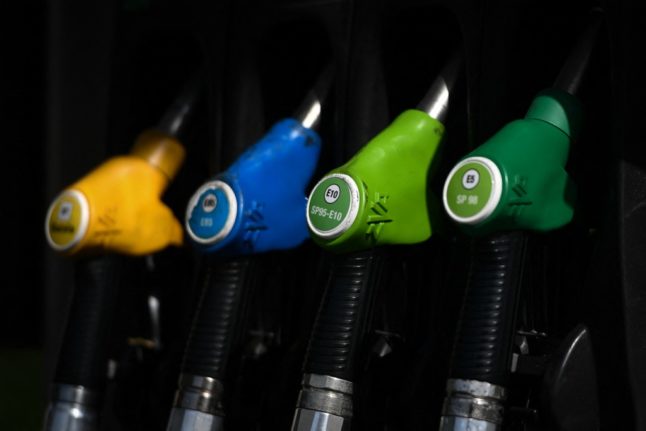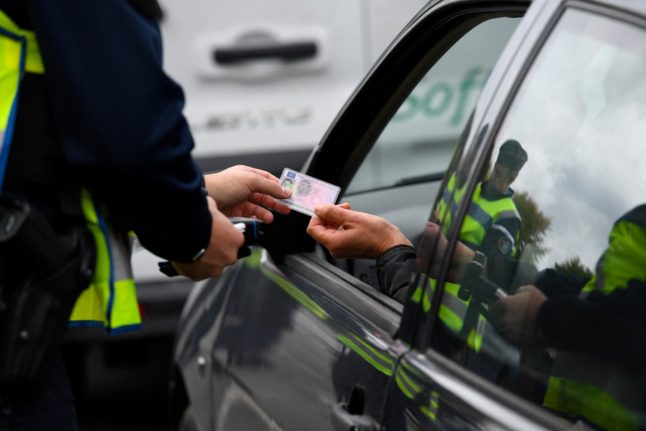The heads of several large fuel distributors in France said on Wednesday that despite the government’s plans to alter existing legislation so that they can sell fuel at a loss, they would refuse to do so.
France’s prime minister, Élisabeth Borne made the initial announcement on Saturday, saying that fuel retailers would soon – for a limited time – be allowed to sell petrol/gasoline and diesel for less than purchase-price in an effort to combat against rising prices.
French government officials, like the spokesperson Olivier Véran, had estimated to RTL that selling at a loss could help consumers save “up to half a euro per litre on petrol.”
OPINION France’s desperate fuel price plan is a sign of tough budget choices ahead
But oil giant TotalEnergies, responsible for one-third (3,400) of France’s service stations, said it would not sell at a loss. Bosses at large supermarket chains Leclerc, Carrefour, Intermarché Système U, Casino and Auchan, have since said they would not sell at a loss either.
Total’s CEO Patrick Pouyanné told French media that its current fuel cap, in place at all of its stations, of €1.99 per litre “is a ceiling. It won’t go any lower. We have already made a major effort.”
Retailers are currently prevented from selling fuel at a loss under a 1963 law, designed in part to protect small and independent retailers.
In order to bring this plan into action, France’s parliament would need to relax the rules for a short period of time.
How much have prices risen by?
As of Wednesday, the average price for diesel in France was €1.96 per litre, and the average price for petrol (SP 95 E10) was €1.96 per litre.
Fuel prices have begun to climb again in France. After a lull over the summer, the business weekly Les Echos reported that diesel had increased by over €0.20 in the past two months and petrol had gone up by €0.12.
French ministers have insisted that higher prices are down to global oil market factors, including Saudi and Russian production cuts, the recent devastating floods in Libya and forecasts of still lower supply in the fourth quarter.
So far the French government had pushed price limits and called on groups to prolong at-cost sales to try and ease the pain, urging major fuel sellers to show “solidarity” towards drivers.
Oil giant TotalEnergies promised to maintain its price cap past the end of 2023, “for as long as prices remain high.”
READ MORE: France’s TotalEnergies to extend fuel price cap until 2024
In France, rising fuel costs have sparked social movements, namely the ‘Yellow Vests’ protests of 2018-2019 which occurred after plans for a new fuel tax.
When could consumers expect prices to drop?
France’s finance minister, Bruno Le Maire, told French broadcaster France 2 that he hoped the measure would take effect “starting on December 1st, for a period of six months”.
🔴🗣️ Bruno Le Maire confirme que les grands distributeurs pourront vendre leur carburant à perte pendant 6 mois d'ici "début décembre" mais rappelle que "l'Etat ne peut pas porter à lui seul le coût de l'#inflation". #Les4V @BrunoLeMaire pic.twitter.com/h2rMnJ3wvp
— Telematin (@telematin) September 18, 2023
“The state can’t bear the cost of inflation by itself, otherwise that will deepen the deficit,” Le Maire said on Monday.
French environment minister, Agnès Pannier-Runacher told BFMTV that “the law will be presented in the next few days to the Council of Ministers, then in October to the National Assembly, and we hope to vote on it in November.”
In terms of when prices would drop, the decision will ultimately be made by individual fuel distributers, and as of Wednesday, many said they would not take part.
Will prices drop at all stations?
If France’s parliament approves the plan, then it would depend on the individual fuel retailers to put it into action, which will depend on their own capacity and willingness to do so.
Despite their early statements, retailers could still change their minds, but Fabrice Godefroy, an expert with the French association 40 millions d’automobilistes told Europe 1 that he believes the effect would be minimal.
“When it comes to distributors who are not also producers (eg. TotalEnergies), they have very small margins on this.
“We’re talking about a margin of just one to two centimes, depending on the fuel. That would be a fairly small reduction, which would not be enough for motorists”.
What about opposition from smaller service stations?
With low-cost petrol mainly a way to bring in customers who go on to buy higher-margin items, large retailers have been calling for the right to sell at a loss — meeting opposition from smaller service stations.
“My members get 40 or 50 percent of their income from fuel sales, so if they sell at a loss, I’d give them three months” to survive, Francis Pousse, president of the Mobilians industry group representing 5,800 independent service stations, told AFP.
Large groups “can’t keep losing €0.15 on every litre of fuel,” Pousse added, saying he was “sceptical” of the measure’s effect on purchasing power.
In response to criticism from independent fuel distributors, the French government on Tuesday promised compensation for qualifying small service stations, which are not owned by large supermarket chains.
France’s law against selling at a loss got a high-profile outing in 2018, when supermarket giant Intermarche admitted that offers of up to 70 percent discounts on products including Nutella chocolate spread were not in line with the rules.
The firm was later fined €375,000 over the promotions, which triggered scenes of shoving and even fights in several of its shops over pots of the creamy hazelnut treat.



 Please whitelist us to continue reading.
Please whitelist us to continue reading.
Member comments